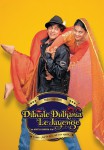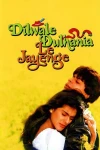Ramprasad Ki Tehrvi Movie Review
The authenticity of its screenplay is the winner.
.jpg)
Ramprasad Ki Tehrvi is a representation of absurdity and the uncertainty that follows after the death of the head of the family. It is also a reflection of the dynamics of the relationships between different members of the family with each other. This film quite intricately explores these dynamics and presents every character in a fulfilling manner. No character is shown as black or white - they are all shown with shades of grey. Everyone has flaws be it the parents or the children. All of these flaws, in the film, have been portrayed realistically and as a viewer I could empathise with each of them.
The film begins with the death of Ramprasad (played by Naseeruddin Shah), a ‘sur’ loving pianist and the father of two daughters and four sons. All the children arrive, along with their spouses and kids, for the mourning ceremony. A few other relatives also come. It is the first time in a really long time that all of them have come together. Every child regrets not coming to see their father when he was alive.
However, the wife of Ramprasad, seamlessly played by Supriya Pathak, is the character you are rooting for. With a few dialogues and more silent expressions, she is able to convey the plight of a woman who has lost her husband. She is successfully able to put across the lack of emotional connection she feels with her children throughout the film. Her earnest play of responding to the question ‘Kaise hua’ asked repeatedly, though sorrowful, is amusing after a point.
Ramprasad Ki Tehrvi, written and directed by Seema Pahwa is an authentic depiction of lower-middle-class families during the time of death. It revolves around the planning of the customary 13th-day ceremony and the way in which the days leading to it pan out. The film quite generously brings to us the essence of familial disputes, the contribution of wives in their husbands’ impending relationships with their parents after marriage, and the sense of taking responsibility for the mother after she has been widowed.
The pace of the film was slow, but the characterization, dialogues, and acting performances make it engaging. Quite often I was reminded of being a part of similar situations in real life. Relatability is something Seema Pahwa has capitalized on well. The light humour found in the constant nagging of relatives, the repetition of the answer to ‘Kaise hua’, and the casual kitchen conversations amongst the sisters-in-law kept me entertained. Overall, the film is a one-time watch - a mellow family drama with a dash of satire - that won’t leave you disappointed.
Movie rating: 3.5/5



.jpeg)
.jpg)
.jpg)



.jpeg)

